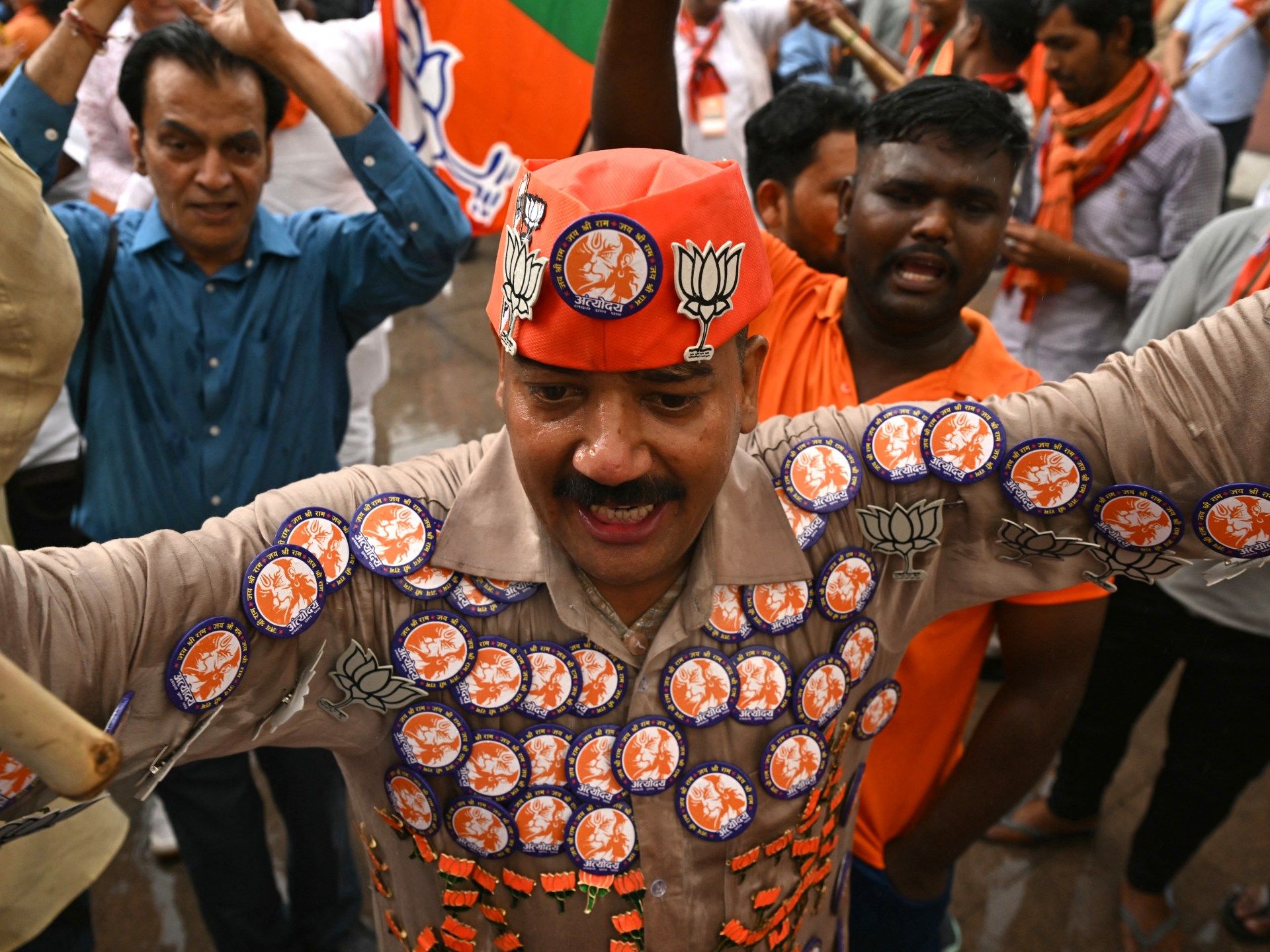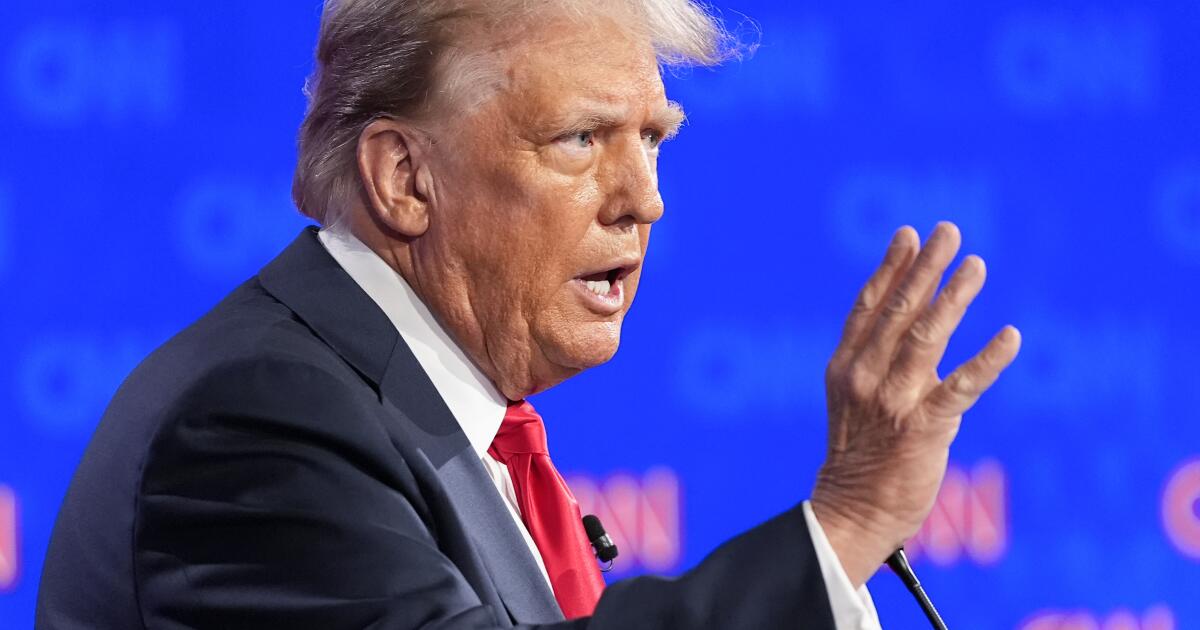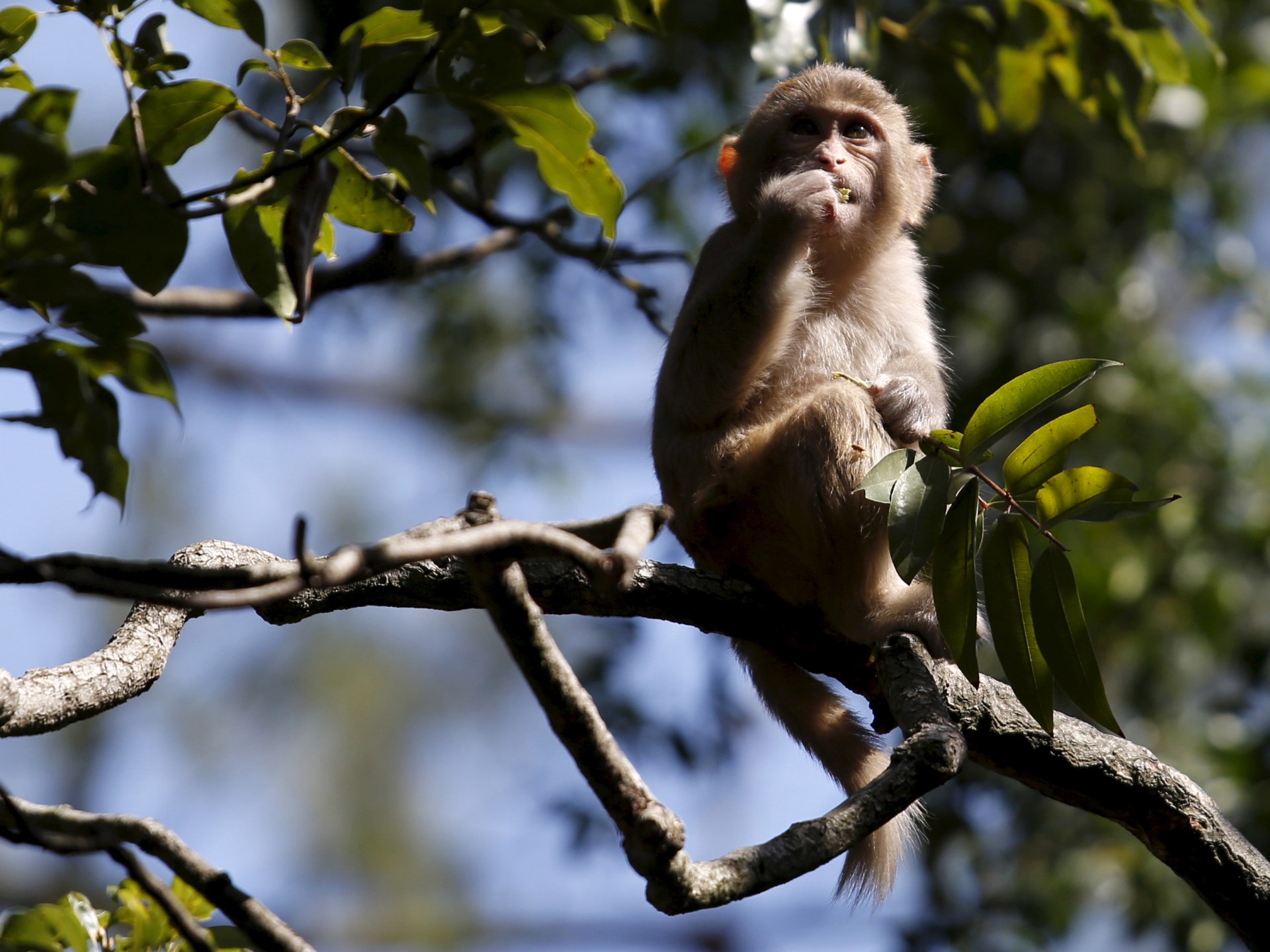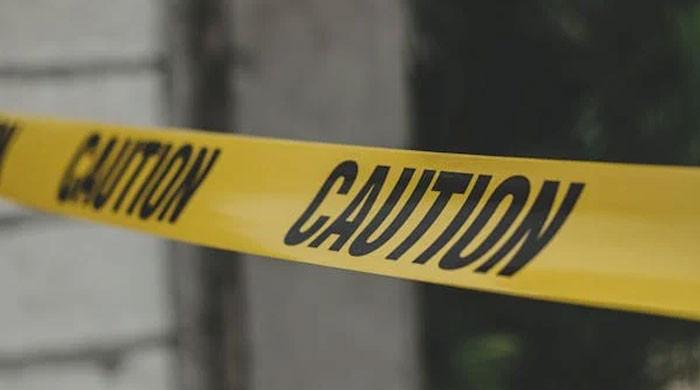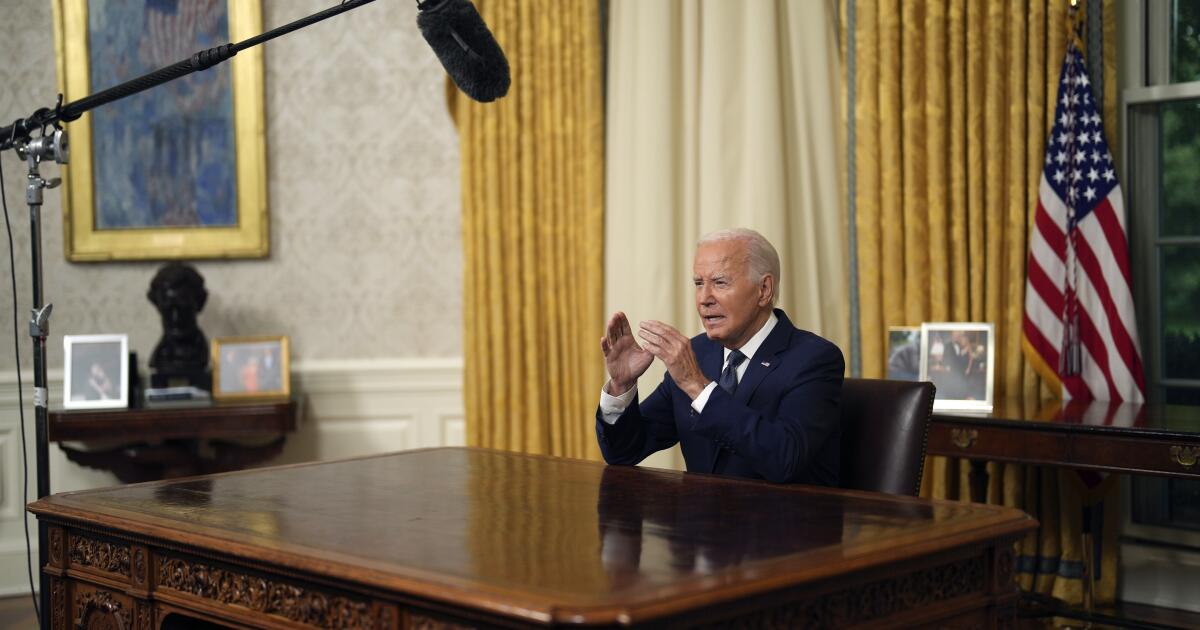New Delhi, India — Indian Prime Minister Narendra Modi's Bharatiya Janata Party (BJP) is on track to lose its national majority after suffering major losses in key states, marking a dramatic shift in a political landscape it has dominated for the past decade.
The BJP is on track to comfortably emerge as the country's largest party in the Lok Sabha, the lower house of India's parliament. But as election officials declared the leads and results of India's six-week election on Tuesday, it became clear that the BJP would struggle to repeat its performances of 2014 and 2019.
Unlike those two elections, when the BJP won clear majorities on its own in the 543-seat house, its leads and victories hovered around 240 constituencies for much of the day. The intermediate mark is 272 seats.
By contrast, the opposition INDIA alliance, led by the Congress Party, was projected to win more than 200 seats, suggesting a much closer race than exit polls had predicted. Released on June 1 after the final phase of India's election cycle, exit polls suggested the BJP would surpass its 2019 tally of 303 seats.
Modi and his party will likely still be able to form India's next government, but they will depend on a group of allies whose support they will need to cross the 272-seat mark. The BJP and its allies – their coalition is known as the National Democratic Alliance (NDA) – were projected to win around 290 seats by late Tuesday afternoon.
“India will probably have an NDA government, where the BJP does not have a majority on its own, and coalition politics will come into play,” said Sandeep Shastri, national coordinator of the Lokniti Network, a research program in New Delhi. Center for the Study of Developing Societies (CSDS), based in London.
On Tuesday night, Modi claimed, in his first comments after the results were announced, the victory of the NDA.
People have reposed their faith in the NDA for the third time in a row! This is a historic feat in Indian history.
I bow to the Janata Janardan for this affection and assure you that we will continue the good work done in the last decade to continue fulfilling the aspirations of…
– Narendra Modi (@narendramodi) June 4, 2024
However, analysts said the election verdict raised questions about the BJP's strategy. As India's long election campaign unfolded, Modi, India's charismatic and polarizing prime minister, had increasingly resorted to fear-mongering about an alleged opposition plot to hand over the nation's resources to Muslims. , at the expense of its Hindu majority. Meanwhile, the opposition had tried to corner Modi with his government's economic record: While the country is the world's fastest-growing major economy, voters told pollsters before the election that high inflation and Unemployment were key concerns for them.
The BJP's campaign slogan, “Abki baar, 400 paar (This time, more than 400)”, set a target of 400 seats for its alliance and 370 seats for the BJP itself.
That speech had an “overconfident tone,” said Nilanjan Mukhopadhyay, Modi's biographer, at a time when many in the Indian public were grappling with the lived realities of rising prices, unemployment and income inequality so wide that it now It is worse than during British colonial rule. The result was “the BJP's sleepwalking into disaster,” said Asim Ali, a political analyst and columnist.
“Today Modi has lost face. He is not that ‘undefeated person’ and the aura of invincible about him is no longer there,” Ali said.
Forming the next government
In some ways, the election verdict has echoes of 2004, when another incumbent BJP government, under then Prime Minister Atal Bihari Vajpayee, was widely expected to win a landslide mandate through exit polls.
Instead, the Congress marginally surpassed the BJP in victories and formed the government with its allies.
But 2024 is not 2004. Despite the setbacks, the BJP remains by far the largest party in parliament and is in a position to form the next government along with its NDA allies. Congress, the largest opposition party, is expected to win around 100 seats, less than half the number the BJP is expected to win when all votes are counted.
Still, two regional parties will now hold the key to India's premiership: Janata Dal-United, led by Nitish Kumar in the state of Bihar; and the Telugu Desam Party, led by Chandrababu Naidu in the southern state of Andhra Pradesh. The TDP leads with 16 seats and the JD(U) with 12. Both parties have also previously been allied with the Congress Party.
While the BJP has made notable gains in southern India (especially in Kerala, where it is expected to win its first Lok Sabha seat), its overall numbers were hit by major losses in the central Hindi-speaking states, that had devastated in recent years. last choice.
In Uttar Pradesh, India's largest state and a key determinant of who governs nationally, the Hindu nationalist party lost in the parliamentary district of Faizabad, home of the controversial Ram Temple, built on the ruins of the 16th-century Babri Masjid. . Modi had consecrated the temple in January.
The consecration of the Ram Temple, overseen by Modi, was at the forefront of the BJP's campaign to mobilize Hindu voters. The party also lost the key Amethi seat, where federal minister Smriti Irani is facing defeat. Irani had achieved a spectacular victory over Rahul Gandhi, the scion of the Gandhi family, by 55,000 votes in 2019. This year, Gandhi contested from the neighboring Rae Bareli constituency and won the seat by a margin more than double the size by the one Modi won. his headquarters, Varanasi, also in Uttar Pradesh.
The BJP also suffered losses in Maharashtra, India's second most politically critical state. At 6 pm India time (12:30 GMT), with most votes counted, the INDIA alliance was ahead in 29 of the state's 48 seats. Only Uttar Pradesh has more seats: 80. In 2019, the BJP alone won 23 seats in Maharashtra, with its allies winning another 18.
Along with Maharashtra, three other states that have been epicenters of India's agrarian crisis, with major farm protests, also suffered losses for the BJP compared to 2019: Haryana, Rajasthan and Punjab. The BJP rules the states of Haryana and Rajasthan.
Congress Celebrations
As soon as the initial trends faded on Tuesday morning, Congress supporters thronged the party headquarters in New Delhi. Supporters were seen sporting white t-shirts with photographs of Rahul Gandhi on the back, while waving party flags, their eyes glued to the giant screens broadcasting the results live.
“Now, at least the Indian people will have a voice to raise against the cruel BJP, which ruled us for the last 10 years. More seats mean we have a good voice and a strong opposition,” said Congress supporter Suresh Verma.
That change in the composition of India's next parliament could also affect how laws are passed. Critics have accused the BJP government of imposing laws in Parliament without discussions or debates.
That will no longer be easy, Shastri said. “It's going to be a much tougher road in parliament, very clearly, for the BJP,” he said.
Beyond parliament, analysts said a weakened mandate could affect the functioning of India's other democratic institutions, which critics have accused the BJP of hijacking for partisan politics.
“Under the brute majority, institutions collapsed in India under the BJP. The power system was very centralized at the top, and India needs these kinds of coalition-based governments for its democracy to survive,” Ali said.
What's next for the BJP?
Once the immediate dust settles over these results, the BJP will do some introspection and the dominant duo of Modi and Amit Shah, India's home minister, whom many consider the prime minister's deputy, will face tougher questions. . “There will be doubts about imagining Modi as the leader of the alliance, where he would have to listen much more to non-BJP leaders,” said Shastri of the CSDS.
Ali, the political analyst, also noted that “the BJP failed to read the terrain,” and a group of yes-men around Modi potentially took his party by surprise. “It's as if the king was only told the stories he wanted to hear,” he said. “It is really important for the BJP that there is a feedback mechanism and decentralization of power.”
Over the past decade, under a majority BJP government led by Modi, India has fallen on several democratic indices amid accusations of repression of dissent, political opposition and the media. Modi did not participate in any press conference in the last decade as prime minister.
If coalition partners rein in the BJP, “there will be respite for Indian civil society and critics of the government,” said Mukhopadhyay, the biographer.
For many Indian Muslims, the result also means relief.
Seeing the results from his shanty in northeast New Delhi, Akbar Khan, a 33-year-old waste picker, said he was delighted. While all seats in Delhi are currently led by the BJP, Khan said “people have come out on the streets and fought in these elections against the [incumbent] government”.
Khan, who also works with waste-picking communities in states like Bihar and Jharkhand, said: “The economically backward castes and classes are hugely upset with Modi, and his divisive politics have not borne any fruit in their kitchen.”
As a Muslim, Khan said he was upset by Modi's Islamophobic comments during the re-election campaign, where he equated the community with “infiltrators” and described them as people “who have more children.”
“Indians needed to vote against this hatred of Modi and the BJP,” he said.

